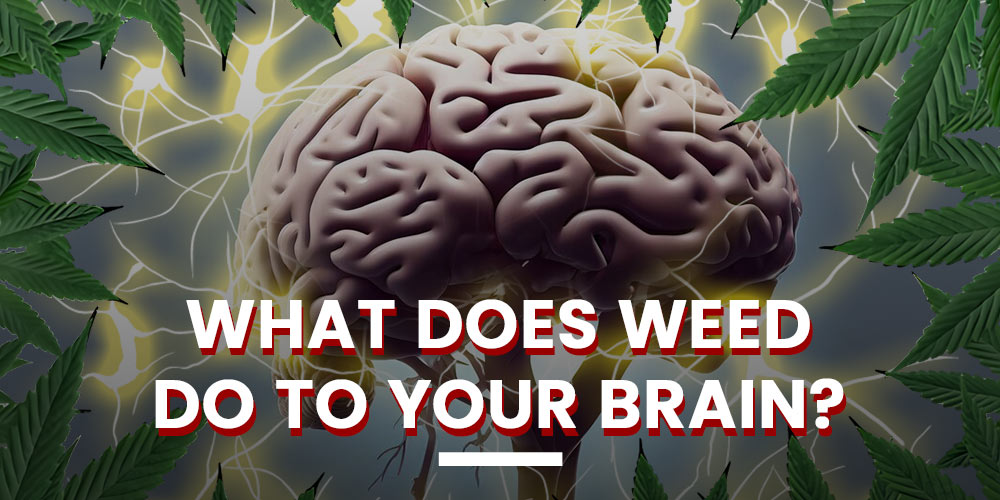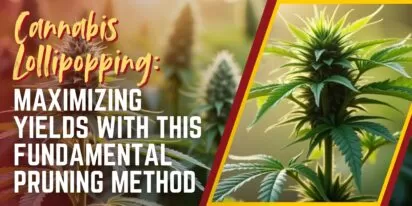Ever tried smoking weed and suddenly wondered what it does to your brain? Then this article is for you!
Marijuana, also known as weed, contains a psychoactive or mind-altering chemical that comes from the cannabis plant. When consumed, it affects the brain by activating the cannabinoid receptors located in the major regions of the human brain and responsible for core human functions including learning, emotion, appetite, pleasure, coordination, and balance among others.
Although a lot of studies have been conducted on the effects of marijuana on the brain, the findings still remain inconclusive. In fact, some evidence claims that the cannabis’ components—-cannabinoids—can also be used for therapeutic purposes, through the assistance of healthcare professionals. The THC, also known as delta-9-tetrahydrocannabinol is the compound responsible for the effects that cause both the brain and body to react to cannabis. While some people use marijuana for medical purposes, it’s still crucial to keep in mind that taking it irresponsibly could produce adverse effects on both the brain and body.
How would Smoking Weed Feel Like?
Smoking weed releases THC and other compounds into the bloodstream where they quickly travel to the brain and to the rest of the body. Consuming edibles—food or beverages—usually delays the supposed effects of weed on the system. The delay can last from up tp 30 to 60 minutes after intake. This is because the drug first passes through the digestive system, causing the THC level to decrease accordingly when consumed orally than when smoked. While most people feel the weeds’ effects almost immediately after intake, experiences may still vary from one person to another. The majority of the users claim to feel euphoria and a sense of relaxation, while others are said to experience a sudden increase in appetite, heightened sensory awareness (such as seeing brighter colors), excitement, and sometimes an altered perception of time.
Smoking weed, however, does not always guarantee pleasant experiences for its users. Other people end up feeling anxious, fearful or horrified instead of feeling calm and relaxed. Such encounters happen usually to beginners, those who consume too much weed or accidentally use strains with unexpectedly high potency. Large doses of marijuana may also lead to the experience of acute psychosis, which includes hallucinations, delusions, and a loss of sense of self. These unappealing but short-term effects, however, are different and distinct from longer-lasting psychotic diseases such as schizophrenia.
What Happens to our Brain when we Ingest Weed?
The THC and the brain’s chemical structure anandamide are said to share the same molecular structure. Anandamide, an endogenous cannabinoid is a neurotransmitter that functions by transmitting chemical signals between nerve cells throughout the neurological system. This similarity allows the THC chemical to be recognized by the brain, allowing the THC to bind itself to the molecules in brain regions known as cannabinoid receptors. Such binding causes alterations in the brain’s normal activity, therefore affecting various brain functions including perception, pleasure, memory, thought, concentration, balance, coordination, and reaction time. For this reason, people who use weed may not be able to drive safely or engage in any physical activities like playing sports or exercising.
The brain’s exposure to certain THC levels through cannabinoid receptors activates the reward system in the brain, which governs the behavior of the brain in response to enjoyable activities including sex and eating. Similar to other drugs that people misuse, THC stimulates the reward system to produce chemical dopamine at levels higher than what is normally seen in response to naturally gratifying stimuli. This surge in dopamine contributes to the substance’s addictive qualities by ‘motivating’ the brain to repeat pleasurable behaviors, which may eventually result in weed overdose if not cautious.
Some people are said to develop tolerance to the effects of weed. Tolerance is mainly characterized by a seemingly growing need for a higher dose of a substance to reach the same initial experience or effect. According to research, an estimated 1 in 11 (9%) weed users tend to develop tolerance more rapidly than others. Daily cannabis use, however, increases the likelihood of addiction development from 25% to 50%.
Can Smoking Weed Cause Long-term Adverse Effects on the Brain?
Based on a study conducted in humans and animals exposure to weed substances during the development stage can result in long-term or perhaps permanent negative alterations in the brain’s activity. Some studies also associated weed consumption with IQ reductions, especially when used during the adolescent stage throughout adulthood. However, not all research on the relationship between marijuana use and IQ has come to the same conclusion, and it is challenging to demonstrate that marijuana use results in a decline in IQ when a number of variables, including genetics, upbringing, age of first use, frequency, and environmental factors, can also affect the findings of the studies.
What does smoking weed do to your brain: Some Takeaways
There are various possible short and long-term consequences of smoking weed on the body. Most of its effects, last only for 6 hours while some are not apparent until long use. Weed supporters think of cannabis as a modern-day solution, while others believe that its drawbacks may still outweigh any potential benefits that it could offer. At the end of the day, it is the individual’s choice of action and self-control that could truly save oneself from the possible adverse effects that one may experience through prolonged cannabis use.















